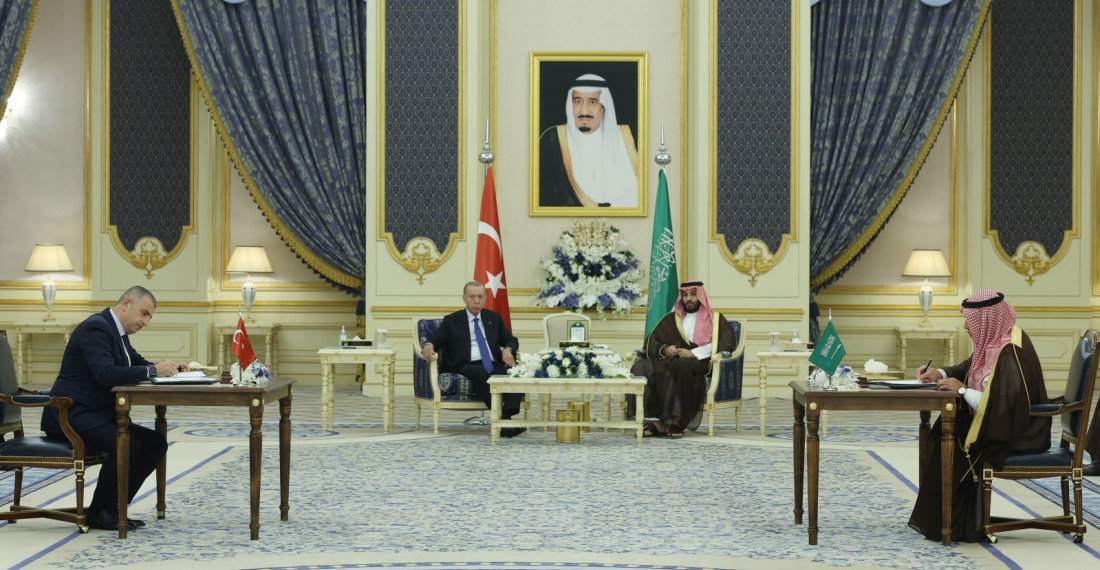Turkish prime minister, Recip Tayip Erdogan, on Monday embarked on a tour of the Gulf region which will see him visiting Saudi Arabia, the United Arab Emirates and Qatar. The trip, coming shortly after Erdogan's re-election as President, is seen as part of an effort to consolidate a strategic partnership with the Gulf countries, based on new realities that have emerged in recent years. The rift between Turkey and Saudi Arabia and UAE has now been fully healed, and this visit is no longer about fixing the past, but is definitely about charting the future.
Economic co-operation, and co-operation in the defence sector are key elements of Erdogan's agenda.
Erdogan arrived in the Saudi Red Sea city of Jeddah on Monday accompanied by an entourage of some 200 businesspeople for the first stop of a three-day Gulf tour.
The highlight of the visit to Saudi Arabia was the meeting between Erdogan and Saudi crown prince, Mohamed bin Salman. The two after oversaw the signing ceremony between Turkish drone magnate Baykar and the Saudi defense ministry, which provides for the supply of Turkish drones to the Kingdom
Saudi Arabia will acquire the drones "with the aim of enhancing the readiness of the kingdom's armed forces and bolstering its defense and manufacturing capabilities," Defence Minister Prince Khalid bin Salman bin Abdulaziz Al Saud said in a tweet on Tuesday.
A defense cooperation plan was also signed by Prince Khalid and Turkish Defence Minister Yasar Guler.
The two countries also inked several memorandums of understanding in different sectors including energy, real estate and direct investments, the Saudi Press Agency, SPA said.
Turkish officials have said they expect new investments from Gulf states soon, as Erdogan's Gulf tour was preceded by Turkish officials including Vice President Cevdet Yilmaz and Treasury and Finance Minister Mehmet Simsek and central bank Governor Hafize Gaye Erkan holding talks in all three countries.
Economic co-operation and investment at the top of the agenda
Erdogan arrived with "high hopes" for investment and finance. "This visit has two main topics: investments, and a financial dimension. We have high hopes for both," he told a news conference at an Istanbul airport before setting off.
Ahead of the presidential runoff that eventually extended his rule into the third decade, Erdogan stressed his intention to meet and thank leaders of the Gulf countries he said had recently sent funding to Turkey, helping relieve the central bank and markets. He did not name the countries nor specify when or how much financing arrived in Turkey.
Ankara has secured some $28 billion in currency swap deals in recent years with the United Arab Emirates, Qatar, China and South Korea, most of which are believed to be in the Turkish central bank’s reserves.
Erdogan will travel to Doha on Tuesday and hold talks with Qatar’s Emir Sheikh Tamim bin Hamad Al Thani.
Erdogan’s last stop will be the United Arab Emirates. He is scheduled to meet President Sheikh Mohamed bin Zayed Al Nahyan (MBZ) in Abu Dhabi on Wednesday.
Business forums have been arranged in Saudi Arabia, Qatar and the United Arab Emirates during the trip.






